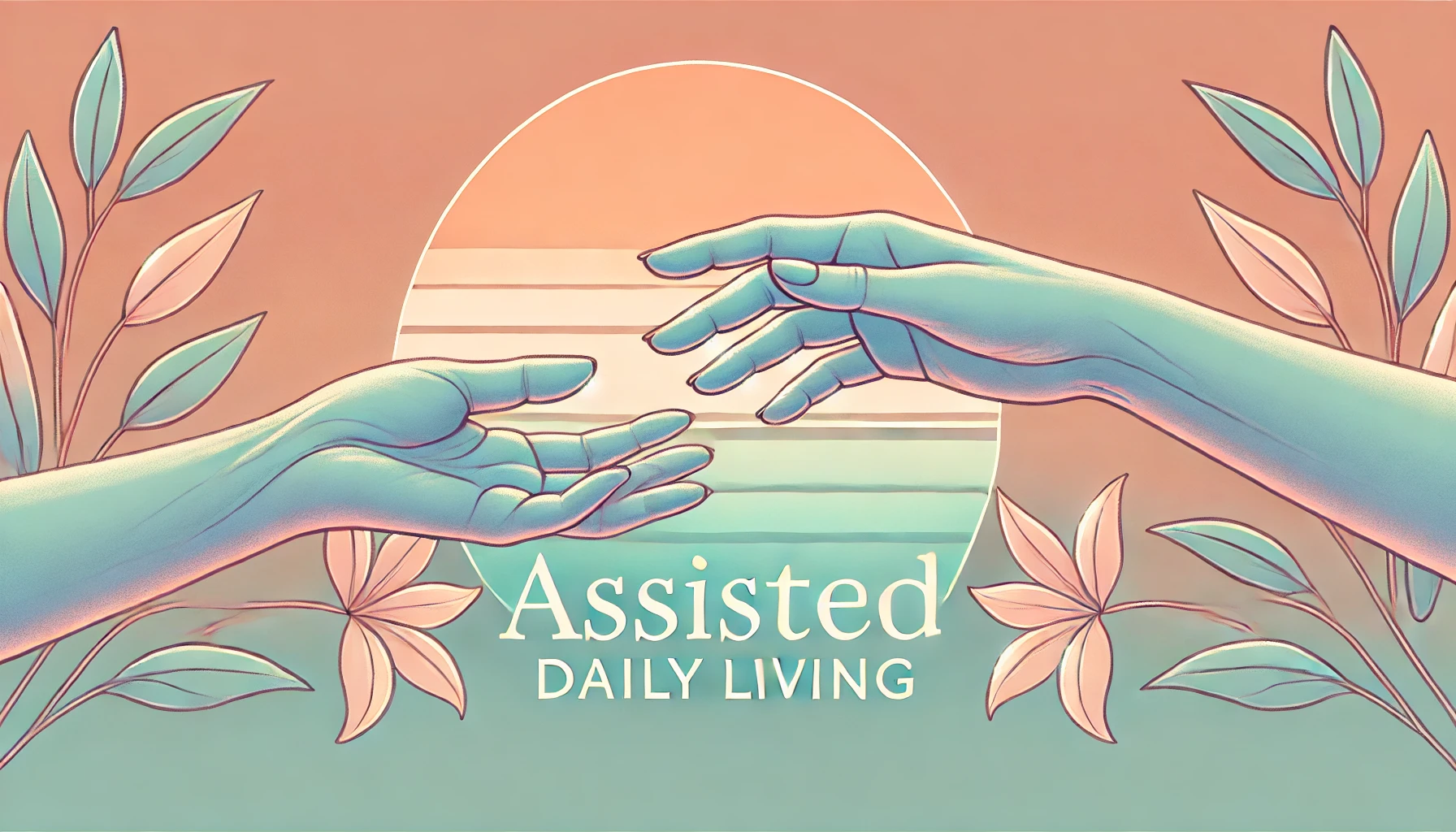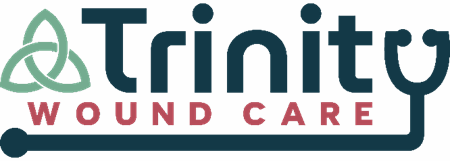Assisted Daily Living: A Pathway to Greater Independence

At Trinity Wound Care, we understand the importance of maintaining independence while ensuring proper care. That’s why we offer free ADL services to those in need. Our team of registered Certified Nursing Assistants (CNAs) provides essential daily support, from assisting with personal hygiene to household chores.
This compassionate service not only helps with daily tasks but also creates a clean and comfortable living environment, promoting dignity and quality of life.
Achieving independence is a significant milestone for seniors and individuals with disabilities. Assisted Daily Living (ADL) offers a pathway to maintain autonomy, ensuring a fulfilling life. This article explores the essential aspects of ADLs and IADLs and how they contribute to independent living.
Defining ADLs
ADLs refer to the basic self-care tasks that we perform every day. These include activities like bathing, dressing, toileting, transferring (moving from one place to another), continence, and eating. Mastering these activities is crucial for personal health and hygiene, serving as the foundation for daily living.
Introducing IADLs
On the other hand, IADLs are more complex tasks that are often necessary for an individual to live independently. These include managing finances, handling transportation (driving or arranging rides), shopping for groceries and necessities, preparing meals, managing communication (using the phone or computer), and maintaining the household (cleaning and laundry). Proficiency in IADLs enables individuals to live more independently and manage their lives effectively.
The Importance of Distinguishing ADLs from IADLs
Understanding the difference between ADLs and IADLs helps in assessing the level of support required. While some may need help with basic ADLs, others might be independent in ADLs but need assistance with IADLs. This distinction is essential in creating a personalized care plan that caters to an individual’s unique needs, ensuring they receive the appropriate level of support.
The Importance of Independent Living
Living independently is a goal that many seniors and individuals with disabilities strive for. It is not just about living alone; it is about maintaining control over one’s life and decisions. Independence fosters a sense of empowerment and contributes to a higher quality of life.
Maintaining Dignity and Quality of Life
Independent living is closely linked to dignity and quality of life. When individuals can perform daily tasks on their own or with minimal assistance, it boosts their confidence and sense of autonomy. Maintaining independence also promotes mental well-being and reduces the feeling of dependency on others.
Support from Assisted Living Facilities
Assisted living facilities are designed to support individuals who need help with daily living tasks. These facilities provide a range of services, including meal preparation, personal hygiene, and medical care, ensuring residents can enjoy a good quality of life while receiving the necessary support. The structured environment offers a balance between independence and assistance.
The Role of Family Caregivers
Family caregivers are often the first line of support for daily living tasks. They provide emotional and practical assistance, helping their loved ones maintain independence for as long as possible. However, caregiver burnout is a real issue, making it essential to explore additional support options when needed. Balancing caregiving responsibilities with personal life can be challenging, emphasizing the importance of seeking external help.
Assisted Living Facilities: A Supportive Option
Assisted living facilities offer a balanced approach to independence and support. They provide a safe and nurturing environment for individuals who need help with daily living tasks but still desire some level of independence. These facilities are designed to cater to various levels of care needs, making them a versatile option for many.
Comprehensive Services
These facilities offer comprehensive services that cover a wide range of needs. From meal preparation and personal hygiene to medical care and social activities, residents receive personalized care tailored to their needs. The holistic approach ensures that all aspects of well-being are addressed.
Cost-Effective Solutions
For many, assisted living facilities are a cost-effective option compared to full-time nursing homes. They offer the necessary support at a fraction of the cost, making them an attractive option for many families. The affordability, combined with the quality of care, makes these facilities a popular choice.
Professional Staff
Certified nursing assistants and home health aides play a crucial role in these facilities. They provide medical assistance and support, ensuring residents receive the best care possible. The professional staff is trained to handle various medical and personal care needs, providing peace of mind to residents and their families.
Daily Living Tasks: A Breakdown
Daily living tasks are divided into basic ADLs and more complex IADLs. Understanding these tasks helps in identifying the level of support required. This section provides a detailed breakdown of the tasks involved and their significance in daily life.
Basic Self-Care Tasks
Basic ADLs include self-care tasks such as bathing, dressing, eating, and toileting. These are essential for personal hygiene and well-being. Mastery of these tasks is crucial for maintaining independence in everyday life.
Complex Tasks
IADLs encompass more complex tasks such as managing finances, cooking, and shopping. These tasks require higher-level thinking and coordination. Being able to perform these tasks independently is a key component of self-sufficiency.
Support Systems
Home health aides can provide support with both ADLs and IADLs. They assist with meal preparation, personal hygiene, and even medical equipment management, ensuring a smooth daily routine. The support system in place can greatly influence the quality of life and independence of individuals.
The Role of Caregivers in Supporting Daily Living
Caregivers, whether family members or professionals, play a vital role in supporting daily living tasks. Their involvement is crucial in helping individuals maintain their independence and quality of life.
Emotional and Practical Support
Family caregivers provide emotional and practical support, helping their loved ones maintain their independence. They assist with daily tasks and offer companionship, enhancing the overall quality of life. The emotional bond and understanding that family caregivers bring are invaluable.
Professional Assistance
Certified nursing assistants and home health aides offer professional support. They provide medical assistance and help with daily tasks, ensuring individuals receive the care they need. Their expertise ensures that all medical and personal care requirements are met efficiently.
Managing Complex Tasks
Caregivers also help with more complex tasks such as managing finances and cooking. Their support enables individuals to live independently and confidently. The presence of a reliable caregiver can make a significant difference in an individual’s daily life.
Independent Living Options
There are various independent living options available, each offering different levels of support. These options cater to the diverse needs of individuals, providing them with the right balance of independence and assistance.
Assisted Living Facilities
Assisted living facilities provide a supportive environment for those who need help with daily tasks. They offer a range of services, including meal preparation, personal hygiene, and medical care. These facilities are ideal for individuals who want to maintain some level of independence while receiving necessary support.
Home Health Care
Home health care services allow individuals to receive the necessary support while staying in their homes. These services include medical care, personal hygiene assistance, and meal preparation. Home health care offers the comfort of familiar surroundings with professional assistance.
Adult Day Care
Adult day care centers offer a safe and engaging environment for individuals during the day. They provide social activities and medical care, giving caregivers a break while ensuring their loved ones are well cared for. These centers are a great option for those who need supervision during the day but can manage independently otherwise.
Enhancing Healthcare Team Outcomes
Healthcare teams play a crucial role in enhancing outcomes for individuals needing assistance with daily living tasks. Their comprehensive approach ensures that all aspects of care are addressed.
Assessing Abilities
Healthcare teams assess an individual’s ability to perform ADLs and IADLs. This assessment helps determine the level of assistance required and creates a personalized care plan. Regular assessments help in monitoring progress and making necessary adjustments.
Comprehensive Care
Medical teams work together to provide comprehensive care and support. They ensure individuals receive the necessary medical attention and assistance with daily tasks. The collaborative effort among healthcare professionals enhances the overall quality of care.
Continuous Monitoring
Continuous monitoring and adjustment of support are essential. Healthcare teams use assessments like the Katz Index and the Lawton IADL Scale to monitor progress and adjust support as needed. This ensures that individuals receive the right level of assistance at all times.
Strategies for Maintaining Independence
Various strategies can help individuals maintain their independence and quality of life. Implementing these strategies can significantly enhance daily living experiences.
Assistive Technology
Assistive technology, such as alarms and reminders, supports daily living tasks. These tools help individuals manage their routines and stay on track. The use of technology can simplify daily tasks and provide a sense of security.
Home Modifications
Home modifications, such as installing grab bars and non-slip mats, provide a safe environment. These changes make it easier for individuals to perform daily tasks independently. Ensuring a safe living space can prevent accidents and promote confidence in performing daily activities.
Transportation Services
Transportation services help individuals maintain their independence by providing reliable transportation for errands and appointments. Access to transportation is crucial for staying connected with the community and attending necessary appointments.
Monitoring Progress and Adjusting Support
Monitoring progress and adjusting support is crucial in ensuring individuals receive the right level of assistance. This ongoing process helps in maintaining independence and quality of life.
Regular Assessments
Healthcare teams use regular assessments to monitor progress. Tools like the Katz Index and the Lawton IADL Scale help track abilities and determine the need for adjustments. Regular assessments ensure that care plans are up-to-date and effective.
Self-Report Measures
Individuals can use self-report measures, such as diaries and journals, to monitor their progress. These measures provide valuable insights into their daily routines and needs. Self-reporting encourages individuals to be actively involved in their care.
Adjusting Support
Adjusting support based on assessments and self-reports ensures individuals receive the necessary assistance to maintain their independence and autonomy. Tailoring the support to meet changing needs is key to effective care management.
Conclusion
Assisted daily living is essential for maintaining independence and quality of life. Understanding ADLs and IADLs helps determine the level of assistance required. Assisted living facilities, caregivers, and healthcare teams provide the necessary support for individuals to maintain their independence.
By exploring different independent living options and implementing strategies to maintain independence, individuals can enjoy a higher quality of life.
If you or a loved one are considering assisted living, take the next step with Trinity Wound Care to ensure a supportive and enjoyable living experience. Contact us today to learn more about our comprehensive care options!


